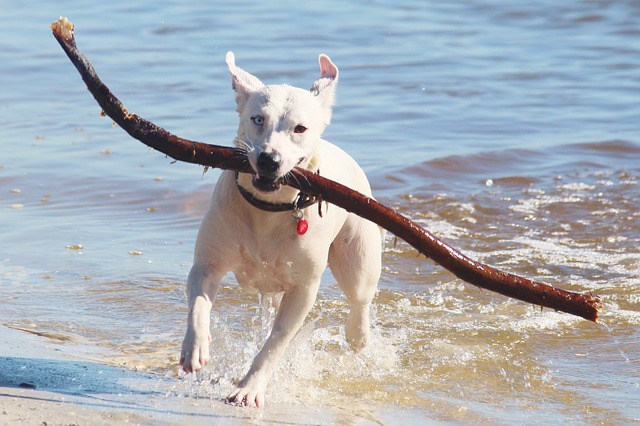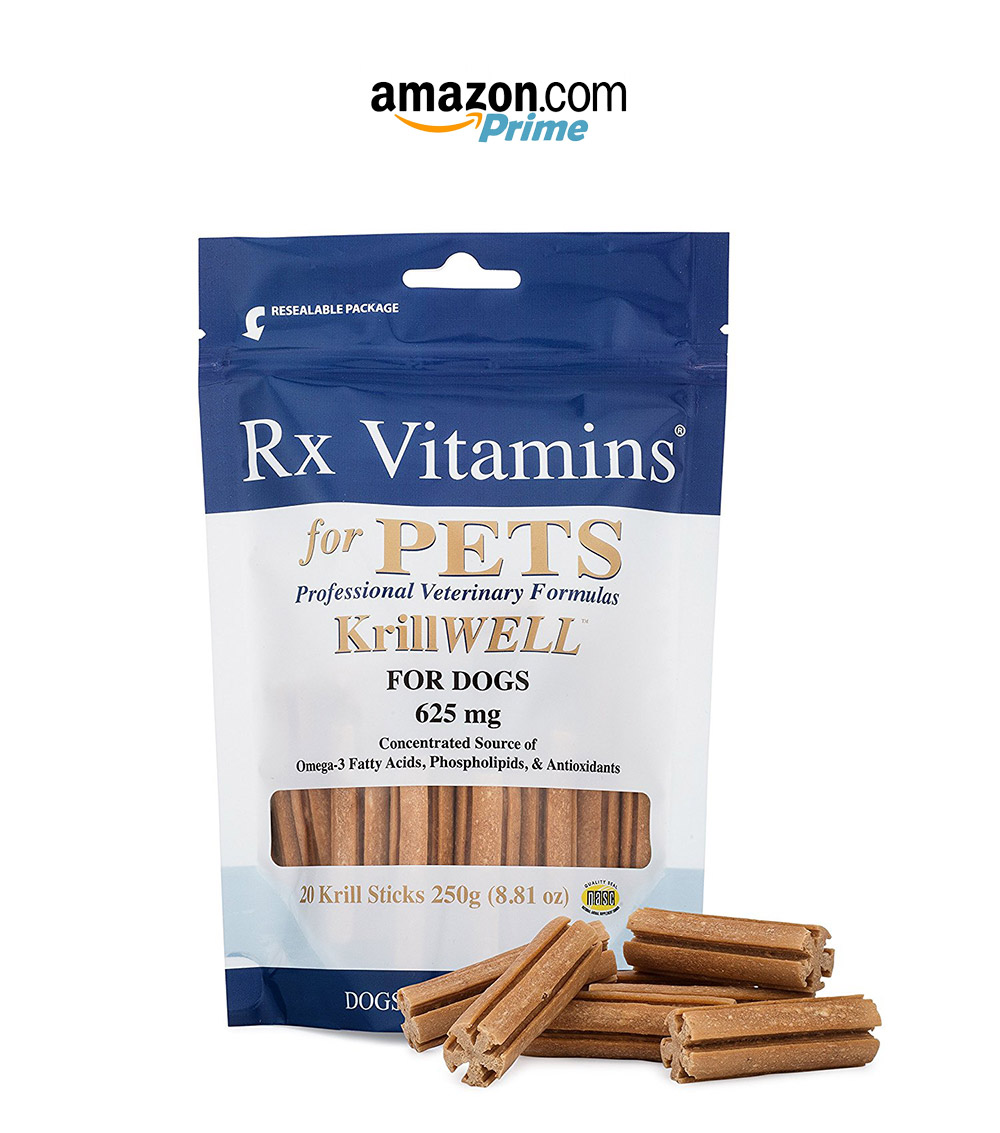All marine oils are not created equal. While supplements derived from salmon and cod oils are rich in essential fatty acids, they lack natural antioxidants and are at risk for contamination.
Krill supplements for dogs are a safer, highly renewable way to deliver the Omega-3 fatty acids your dog needs to maintain healthy skin, a shiny coat, strong joints, and a powerful immune system.

Here are 7 important reasons you should be giving your dog a krill supplement.
1. Krill is less likely to accumulate heavy metals.
Many of the fish used to create fish oil supplements are at risk of ingesting and accumulating industrial pollutants and toxins such as mercury and other heavy metals. Larger fish eat smaller fish, which could contain toxins, and those contaminants build up over time. Since krill are tiny and at the bottom of the food chain, accumulation of heavy metals is not a concern.
2. Krill contains more EPA than fish oil.
EPA is an important Omega-3 fatty acid that acts as an anti-inflammatory. It helps with conditions of the heart, kidneys, skin, and joints that cause inflammation. There are 240 mg/g of EPA in krill versus 180 mg/g in regular fish oil.

3. Krill doesn’t leave behind unpleasant fishy smells.
Some dogs love the fishy taste and odor of fish oil supplements, while others turn their snout up at it. And let’s not forget the poor humans who have to endure the fishy aroma emanating from their dogs’ mouths (and bums) – yuck!
4. Krill is a highly sustainable food source.
When the amazing health benefits of krill were discovered, environmental groups were concerned that these tiny organisms – that make up a major food source for countless species – would be overharvested. According to the Marine Stewardship Council, krill are not currently at risk because they are so plentiful and prolific. There are roughly 500 million tons of krill in the northern seas, with only 110,000 tons harvested annually.

5. Krill offers a higher omega-3 absorption rate.
Key nutrients in krill oil actually enable dogs’ digestive systems to more easily absorb omega-3 fatty acids. So when your pup consumes krill, he’s actually able to absorb much more omega-3s than with the equivalent of fish oil. Thanks to the high absorption rate of krill, dogs only need a small amount to reap the benefits – about 1/5 the dose of regular fish oil. Those who have struggled with spoonfuls of messy oil or massive capsules will appreciate that!
6. Krill is a natural antioxidant.
Krill is a natural source of an antioxidant called astaxanthin. Antioxidants guard against oxidation of fragile omega-3 fatty acids and neutralize the oxidant effect of free radicals that may lead to disease.
7. Krill is free from undesirable side effects.
Krill supplements are said to be free of the common unpleasant side effects often seen in fish oil products such as fishy aftertaste, as mentioned earlier, reflux and belching of fish flavors.
How can I add krill to my dog’s diet?
If you’d you like to test what effects krill oil can have on your dog, we’d encourage you to try a krill based product such as the RxVitamins Krill Sticks (available on Amazon Prime). They contain a high concentration of powerful Omega-3’s (you only have to give your dog one every other day). In addition, it doubles as a dental chew and helps keep your dog’s teeth free of plaque and tartar.
H/T to Mercola Healthy Pets
These statements have not been evaluated by the Food and Drug Administration. This product is not intended to diagnose, treat, cure, or prevent any disease. The information on this website is not intended to replace a one-on-one relationship with a qualified healthcare professional.


